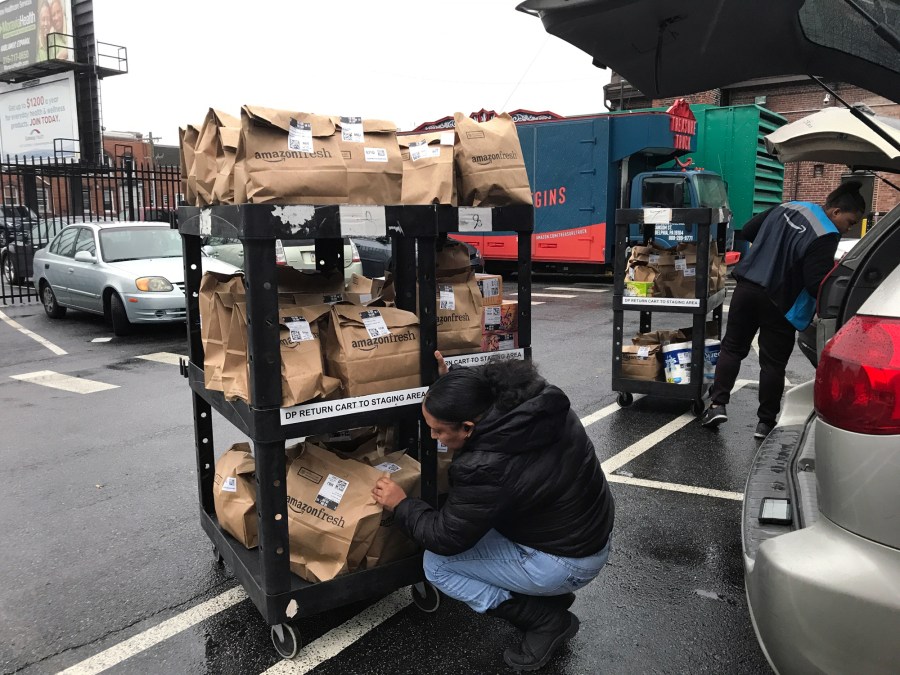
This week we’re going to talk about one of the newest kinds of “nonemployee” work that’s arrived at the doorstep of this economy: app-based gig work. (If you’re thinking, “Finally,” you’re not alone.)
When we’ve talked about how we were looking into all of the ways that companies shed employees and the responsibilities that come with them, many people assumed we were talking about Silicon Valley. But ride-hailing and food-delivery apps are just the tip of the iceberg. The battles over what “employment” really means have been going on for much longer, and they affect so many more people in the American workforce.
Note: This is the last episode of this season of“The Uncertain Hour.” It will be even better if you start at the beginning.
This question of who is an employee and who is an independent contractor has been argued about in a lot of industries. And it can start to feel like as soon as it’s litigated in one context, the same problem arises somewhere else.
So this week we’ll look at how tech-based gig companies sell themselves to workers by offering flexibility. And we’ll see how it’s often the workers who end up having to be flexible and accommodating when they’re working for an app, as we explore this thing we used to call employment: what happened to it, why it happened and what this new kind of workforce means for the American dream.
This concludes our fifth season of “The Uncertain Hour.” Thanks so much to our listeners who wrote in about their experiences with nonemployment, some of whom we featured at the end of this episode. Thanks also to listener Joel Knopf, who wrote the song “W2,” inspired by this season.
And, of course, thanks to you for listening. To be the first to hear about the next season of “The Uncertain Hour,” subscribe to our mailing list.
Here’s additional reading and material we used in our research:
- “Employment Status of Uber and Lyft Drivers: Unsettlingly Settled” by Jillian Kaltner (PDF)
- “Amazon Drivers Are Hanging Smartphones in Trees to Get More Work” from Bloomberg
- “I delivered packages for Amazon and it was a nightmare” from the Atlantic
- “The Amazonification of Logistics: E-Commerce, Labor, and Exploitation in the Last Mile” by Jake Alimahomed-Wilson (PDF), from the book “The Cost of Free Shipping”
- “On-Demand and on-the-edge: Ride-hailing and Delivery Workers in San Francisco” by Chris Benner and others
- “What Do We Know About Gig Work in California? An Analysis of Independent Contracting” by Annette Bernhardt and Sarah Thomason (PDF)
- “Digital Piecework” from Dissent magazine
- “Platform Driving in Seattle” by several authors at the Institute for Workplace Studies at Cornell (PDF)
- The full text of California’s Proposition 22, and Lyft’s own economic impact report
- “The Uber/Lyft Ballot Initiative Guarantees only $5.64 an Hour” by Ken Jacobs and Michael Reich
- “Proposition 22: Analyzing the impact on app-based drivers’ earnings” by Christopher Thornberg, funded by Lyft (PDF)
- And Jacobs and Reich’s response to that study
- Finally, Jeff Bezos’ 1997 shareholder letter is a really interesting artifact to look back on now.
The future of this podcast starts with you.
This season of “The Uncertain Hour” tells the unheard stories of real people affected by the welfare-to-work industrial complex.
Stories like these are seldom in the limelight. It takes extensive time and resources to do this type of investigative journalism … to help you understand the complexity of our economy and to hold the powerful to account.
We need your support to keep doing impactful reporting like this.
Become a Marketplace Investor today and stand up for vital, independent journalism.












